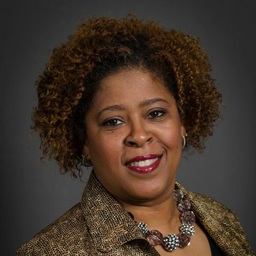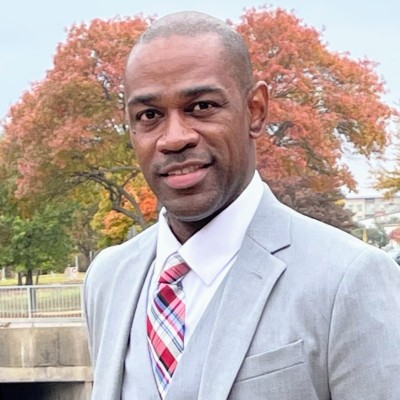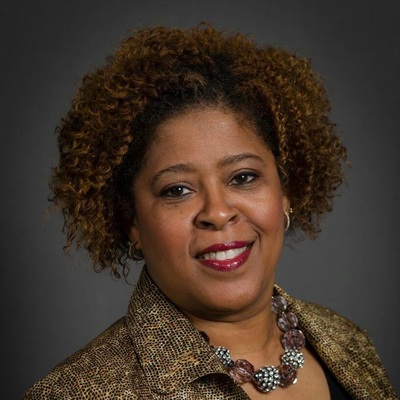Community College
Scroll below to select research from the following scholars

Dr. John C. Turner
Title: Celeb Scholar™️/Public Speaker
Research Topic: BLACK IDENTITY DEVELOPMENT ON A FIRST YEAR AFFINITY COURSE FOR AFRICAN AMERICAN MALES AT A TWO-YEAR COMMUNITY COLLEGE
Institution: Indiana University
Committee Chair: Jim Scheurich, Ph.D.
Abstract: The research for this dissertation is a study of one case example of programs and classes put into place for African American males at community colleges around the United States with a focus on how these programs were successful or not in assisting in the persistence, retention, and graduation of these students. The purpose of using Cross’ (1991) Black Identity Development Theory as a framework for exploring the students’ experiences in racial ‘awakening’ was to track the patterns in how these experiences aligned with Cross’ concepts.
Title: Celeb Scholar™️/Public Speaker
Research Topic: BLACK IDENTITY DEVELOPMENT ON A FIRST YEAR AFFINITY COURSE FOR AFRICAN AMERICAN MALES AT A TWO-YEAR COMMUNITY COLLEGE
Institution: Indiana University
Committee Chair: Jim Scheurich, Ph.D.
Abstract: The research for this dissertation is a study of one case example of programs and classes put into place for African American males at community colleges around the United States with a focus on how these programs were successful or not in assisting in the persistence, retention, and graduation of these students. The purpose of using Cross’ (1991) Black Identity Development Theory as a framework for exploring the students’ experiences in racial ‘awakening’ was to track the patterns in how these experiences aligned with Cross’ concepts.
| black_identity_development_on_a_first_year_affinity_course.pdf | |
| File Size: | 867 kb |
| File Type: | |
 @VKSBrevard!
@VKSBrevard!
Dr. Melissa Patton @VKSBrevard!
Title: President, Victory Kid Sports
Research Topic: Life Management Model Participants: Their Experiences and Persistence as Adult Learners
Institution: Benedictine University
Committee Chair: Norma Pérez-Kahler, Ed.D.
Abstract: Many nontraditional/adult students, defined as those who are considered under-served, underrepresented, and/or disadvantaged college students, attend community colleges. Their academic and socioemotional needs are complex. To better meet these needs, college faculty and staff can develop strategic partnerships with community-based organizations and K–12 schools to provide additional support to nontraditional college students. In this phenomenological study, a small group of adult TRIO Student Support Services (SSS) students at a Midwestern community college were interviewed to discover their experiences of participating in a life management model, a strategic model that forms a partnership between community-based organizations and the local community college. The participant responses shed light on how a community-based strategic life management model, institutional support, and personal factors influence nontraditional/adult students and enable them to persist in college.
Title: President, Victory Kid Sports
Research Topic: Life Management Model Participants: Their Experiences and Persistence as Adult Learners
Institution: Benedictine University
Committee Chair: Norma Pérez-Kahler, Ed.D.
Abstract: Many nontraditional/adult students, defined as those who are considered under-served, underrepresented, and/or disadvantaged college students, attend community colleges. Their academic and socioemotional needs are complex. To better meet these needs, college faculty and staff can develop strategic partnerships with community-based organizations and K–12 schools to provide additional support to nontraditional college students. In this phenomenological study, a small group of adult TRIO Student Support Services (SSS) students at a Midwestern community college were interviewed to discover their experiences of participating in a life management model, a strategic model that forms a partnership between community-based organizations and the local community college. The participant responses shed light on how a community-based strategic life management model, institutional support, and personal factors influence nontraditional/adult students and enable them to persist in college.
| patton.melissa.life_management_model_participants._their_experiences_and_persistence_as_adult_learners.pdf | |
| File Size: | 889 kb |
| File Type: | |

Dr. MarQo Patton
Title: CEO, Creative Consultant at Jusreall Music Group Global
Research Topic: Perceptions of Technology-mediated Instruction at a Southeastern Community College
Institution: Lipscomb University
Committee Chair: Dr. Debi Hoggatt
Abstract: This qualitative dominant, mixed methods research study examined student and instructor perceptions of technology used to mediate learning in a community college environment. Methods of data collection for this study included a questionnaire with Likert scale and open response items, student and instructor interviews, and an analysis of a random sample of archival data from course syllabi. All instructor participants reported moderate (51.42%) or high (48.57%) comfort with technology use. Qualitative data revealed the primary uses of technology-mediated learning (TML) to deliver instructional content, to communicate, and required to complete course assignments. It was also used to describe the ways instructors acquire the skills needed for TML. The majority of instructors acquired technology skills through self-study (51.42%) or a combination of institutional support and self-study (37.14%). The study revealed student and instructor perceptions of the impact of TML on student engagement and achievement. Both students and instructors generally agreed that technology has a positive impact on engagement and achievement. Interview responses revealed mixed perceptions of TML’s impact on student engagement and achievement. The quantitative analysis revealed that there were no statistically significant differences in the frequency or perceptions of usefulness between instructional divisions or the perceptions of the impact of course delivery models on student engagement or student achievement.
Title: CEO, Creative Consultant at Jusreall Music Group Global
Research Topic: Perceptions of Technology-mediated Instruction at a Southeastern Community College
Institution: Lipscomb University
Committee Chair: Dr. Debi Hoggatt
Abstract: This qualitative dominant, mixed methods research study examined student and instructor perceptions of technology used to mediate learning in a community college environment. Methods of data collection for this study included a questionnaire with Likert scale and open response items, student and instructor interviews, and an analysis of a random sample of archival data from course syllabi. All instructor participants reported moderate (51.42%) or high (48.57%) comfort with technology use. Qualitative data revealed the primary uses of technology-mediated learning (TML) to deliver instructional content, to communicate, and required to complete course assignments. It was also used to describe the ways instructors acquire the skills needed for TML. The majority of instructors acquired technology skills through self-study (51.42%) or a combination of institutional support and self-study (37.14%). The study revealed student and instructor perceptions of the impact of TML on student engagement and achievement. Both students and instructors generally agreed that technology has a positive impact on engagement and achievement. Interview responses revealed mixed perceptions of TML’s impact on student engagement and achievement. The quantitative analysis revealed that there were no statistically significant differences in the frequency or perceptions of usefulness between instructional divisions or the perceptions of the impact of course delivery models on student engagement or student achievement.
| patton-coulter-white.pdf | |
| File Size: | 2415 kb |
| File Type: | |
 DebPK
DebPK
Dr. Deborah K. Peoples @DebPK
Title: Program Manager
Research Topic: Personal Connections and Career Reflections:Examining the Social Networks and Career Choices of African American Women Community College Leaders.
Institution: Morgan State University
Committee Chair: Rosemary Gillett-Karam, PhD
Abstract: The purpose of this qualitative multi-case study was to examine the role of social networks in the career decisions and leadership of female African American community college senior leaders. The underrepresentation of women and people of color in leadership is not a new issue, and higher education has acknowledged this lack of representation as both a challenge and an opportunity. Networking is one of many strategies that successful leaders have identified as contributing to their success. This research explored how networks of African American women community college senior leaders are constructed and how they used the resultant resources for professional growth and career progression. Social capital theory provided the framework to characterize the lived experiences of African American women community college leaders as their careers evolved, with particular focus on network characteristics and networking behaviors, and to examine and draw conclusions about one grand tour question and three sub-questions. While social capital researchers used different models to explain the interaction that builds resources, there is agreement that social networks have value. For study participants, social networks provided access to social capital that influenced their career choices and outcomes.
Title: Program Manager
Research Topic: Personal Connections and Career Reflections:Examining the Social Networks and Career Choices of African American Women Community College Leaders.
Institution: Morgan State University
Committee Chair: Rosemary Gillett-Karam, PhD
Abstract: The purpose of this qualitative multi-case study was to examine the role of social networks in the career decisions and leadership of female African American community college senior leaders. The underrepresentation of women and people of color in leadership is not a new issue, and higher education has acknowledged this lack of representation as both a challenge and an opportunity. Networking is one of many strategies that successful leaders have identified as contributing to their success. This research explored how networks of African American women community college senior leaders are constructed and how they used the resultant resources for professional growth and career progression. Social capital theory provided the framework to characterize the lived experiences of African American women community college leaders as their careers evolved, with particular focus on network characteristics and networking behaviors, and to examine and draw conclusions about one grand tour question and three sub-questions. While social capital researchers used different models to explain the interaction that builds resources, there is agreement that social networks have value. For study participants, social networks provided access to social capital that influenced their career choices and outcomes.
| dpeoplesdissertation_final12152014.pdf | |
| File Size: | 1392 kb |
| File Type: | |
 @dr4man
@dr4man
Dr. Scheherazade West Forman @dr4man
Title: Dean, Student Development Services at Prince George's Community College
Research Topic:Characteristics of Successful Community College Students
Institution: Morgan State University
Committee Chair: Shirlene Lofton Snowden, Ed.D.
Abstract: The purpose of this quantitative study was to find predictors of student success. Using a predictive correlational design, the intent of the study was to find the relationships between the dichotomous dependent variable with the categories, degree recipients and non-degree recipients, and the independent variables, student characteristics and risk factors. The conceptual framework for this study was Astin’s Input-Environment-Outcome (I-E-O) model which addresses the complexities of research in higher education by highlighting the interdependence between inputs, environments, and outputs. The use of a predictive design allowed the researcher to find the likelihood of a relationship between outcomes by using the independent variables as predictors.
To address the research questions descriptive statistics, bivariate cross tabulations, and binary logistic regression were conducted. The descriptive statistics were reported from the participants’ responses and the percentage of the total response. The bivariate cross tabulations measured the relationship between the expected and observed counts for the two categories. During the analysis only the significant categorical variables were retained and entered into SPSS using the default enter mode. The distinguishing characteristics of successful community college students were found in the student characteristics age, race, and parents’ education. The distinguishing characteristics of risk factors were found in delayed enrollment, dependents, and part-time enrollment. Specifically, the predictors for participants who earned the associate degree consisted of a non-traditional aged student, who is White, with a parent who graduated from college or higher, had a minimal delay in entry into the community college, was enrolled part-time, and did not have dependents. Implications from practice to policy are presented in relation to how the community college should strengthen its focus on the traditional aged student who is a minority, the first in the family to attend college, has a minimal delay in their entry into college, enrolls full-time, and has dependents.
Title: Dean, Student Development Services at Prince George's Community College
Research Topic:Characteristics of Successful Community College Students
Institution: Morgan State University
Committee Chair: Shirlene Lofton Snowden, Ed.D.
Abstract: The purpose of this quantitative study was to find predictors of student success. Using a predictive correlational design, the intent of the study was to find the relationships between the dichotomous dependent variable with the categories, degree recipients and non-degree recipients, and the independent variables, student characteristics and risk factors. The conceptual framework for this study was Astin’s Input-Environment-Outcome (I-E-O) model which addresses the complexities of research in higher education by highlighting the interdependence between inputs, environments, and outputs. The use of a predictive design allowed the researcher to find the likelihood of a relationship between outcomes by using the independent variables as predictors.
To address the research questions descriptive statistics, bivariate cross tabulations, and binary logistic regression were conducted. The descriptive statistics were reported from the participants’ responses and the percentage of the total response. The bivariate cross tabulations measured the relationship between the expected and observed counts for the two categories. During the analysis only the significant categorical variables were retained and entered into SPSS using the default enter mode. The distinguishing characteristics of successful community college students were found in the student characteristics age, race, and parents’ education. The distinguishing characteristics of risk factors were found in delayed enrollment, dependents, and part-time enrollment. Specifically, the predictors for participants who earned the associate degree consisted of a non-traditional aged student, who is White, with a parent who graduated from college or higher, had a minimal delay in entry into the community college, was enrolled part-time, and did not have dependents. Implications from practice to policy are presented in relation to how the community college should strengthen its focus on the traditional aged student who is a minority, the first in the family to attend college, has a minimal delay in their entry into college, enrolls full-time, and has dependents.
| formanfinalfinalnov30.pdf | |
| File Size: | 2066 kb |
| File Type: | |
 @DrDSnowden
@DrDSnowden
Dr. Daphne Renee Snowden @DrDSnowden
Title: Dean of Special Projects and Assessments, Baltimore City Community College
Research Topic: An Examination of Maryland Community College Trustees’ Intentions to Promote Succession Planning
Institution: Morgan State University
Committee Chair: Sylvester McKay, Ph.D.
Abstract: The purpose of this study was to examine Maryland community college trustees’ intentions to promote succession planning. This study focused on community college trustees’ understandings of their roles and responsibilities related to sustainability of institutions, their knowledge of the leadership crisis, and their intentions to promote succession planning in Maryland community colleges. Two major concerns guided this research: (a) the projected large numbers of community college leaders and staff retiring and preparing for retirements and (b) the need to ensure that current employees are prepared to successfully transition into leadership positions while maintaining the stability and continuance of the institution.
Starting with the theory of planned behavior as the theoretical framework, a questionnaire was used to measure trustees’ knowledge of the leadership crisis, attitudes towards succession planning, subjective norms about succession planning, and perceived behavioral control of succession planning with trustees’ intentions to promote succession planning in Maryland community colleges. The study employed a quantitative research methodology to collect data from the community college trustees associated with the 16 public community colleges in Maryland.
The data suggested that Maryland community college trustees believe their primary role and responsibility is to appoint and evaluate the institution’s president. The study also revealed that trustees were aware of the pending leadership crisis. In examining succession planning through the lens of the theory of planned behavior, the results suggested that participating trustees had favorable attitudes towards succession planning, felt pressured from the faculty and staff (subjective norms) about succession planning, held favorable perceptions of their perceived behavioral control of succession planning; and indicated intentions to promote succession planning in Maryland community colleges.
The data also supported the development of succession planning policies for presidential recruitment and succession planning practices for key positions throughout the institution. Recommendations included: (a) succession planning being incorporated in the institution’s strategic plan, (b) trustees participating in succession planning professional development training, and (c) recruitment practices throughout the institution that incorporated succession planning elements. The study concluded with future research recommendations to further enhance the literature about succession planning in community colleges.
Title: Dean of Special Projects and Assessments, Baltimore City Community College
Research Topic: An Examination of Maryland Community College Trustees’ Intentions to Promote Succession Planning
Institution: Morgan State University
Committee Chair: Sylvester McKay, Ph.D.
Abstract: The purpose of this study was to examine Maryland community college trustees’ intentions to promote succession planning. This study focused on community college trustees’ understandings of their roles and responsibilities related to sustainability of institutions, their knowledge of the leadership crisis, and their intentions to promote succession planning in Maryland community colleges. Two major concerns guided this research: (a) the projected large numbers of community college leaders and staff retiring and preparing for retirements and (b) the need to ensure that current employees are prepared to successfully transition into leadership positions while maintaining the stability and continuance of the institution.
Starting with the theory of planned behavior as the theoretical framework, a questionnaire was used to measure trustees’ knowledge of the leadership crisis, attitudes towards succession planning, subjective norms about succession planning, and perceived behavioral control of succession planning with trustees’ intentions to promote succession planning in Maryland community colleges. The study employed a quantitative research methodology to collect data from the community college trustees associated with the 16 public community colleges in Maryland.
The data suggested that Maryland community college trustees believe their primary role and responsibility is to appoint and evaluate the institution’s president. The study also revealed that trustees were aware of the pending leadership crisis. In examining succession planning through the lens of the theory of planned behavior, the results suggested that participating trustees had favorable attitudes towards succession planning, felt pressured from the faculty and staff (subjective norms) about succession planning, held favorable perceptions of their perceived behavioral control of succession planning; and indicated intentions to promote succession planning in Maryland community colleges.
The data also supported the development of succession planning policies for presidential recruitment and succession planning practices for key positions throughout the institution. Recommendations included: (a) succession planning being incorporated in the institution’s strategic plan, (b) trustees participating in succession planning professional development training, and (c) recruitment practices throughout the institution that incorporated succession planning elements. The study concluded with future research recommendations to further enhance the literature about succession planning in community colleges.
| an_examination_of_maryland_community_college_trustees’_intentions_to_promote_succession_planning.pdf | |
| File Size: | 2804 kb |
| File Type: | |





